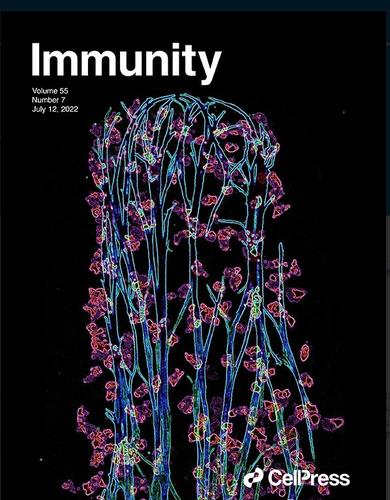July 15, 2022
Study reveals that a cell type traditionally considered to be destructive is actually helpful in maintaining a healthy gut

The gut is home to millions of microorganisms, referred to as the microbiome. These microbes communicate with immune cells found in the gut and influence immune responses. There are many different immune cells resident in the gut, and one of these cell types, called eosinophils, are found to be present in very high number.
Eosinophils are known to be an important cell type that are associated with allergic disease and are traditionally viewed as being pathogenic, leading to tissue destruction. Until now, the reason for their high presence in the small intestine was not understood. The study team set out to understand why these pathogenic cells were found in the healthy gut. They discovered that eosinophils help to coordinate the response to the microbiota and are crucial for the maintenance of a healthy gut. Rather than being destructive to the gut tissue, they are required to limit inflammation in response to the microbiota and prevent overt tissue destruction.
The intestinal microbiota has proved to be a key player in modulating eosinophil functions in the gut, and eosinophils are more complicated than previously appreciated. These findings have implications for the study of the gut microbiota and eosinophils in intestinal tissues in health and disease.
An image from this study won the cover position for this issue of Immunity (congrats McCoy team!) Ignacio et al. show that eosinophils are found in large numbers in the small intestine and are required to maintain homeostasis during microbial colonization. The image depicts stylized whole mount immunostaining image of a mouse small intestinal villus showing eosinophils (pink) and villus smooth muscle cells (blue). Cover image by Jeremiah Bernier-Latmani.
The Snyder Institute for Chronic Diseases is a research facility at the University of Calgary’s Cumming School of Medicine focused on advancing modern medicine’s capacity to ease the burden of chronic and infectious disease. Our 480 highly qualified researchers, clinicians and trainees use our world-class research facilities and technologies to make ground-breaking discoveries leading to disease prevention, new treatments and ultimately cures for these conditions. We believe there are undiscovered pathways to precise medical applications we call Precision Medicine – tailored medical approaches – which will improve the quality of life for millions of people. Investments in our Institute will spark meaningful discoveries and ensure that this vital research continues. Visit snyder.ucalgary.ca and follow @SnyderInstitute to learn more.
